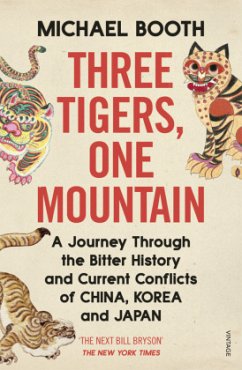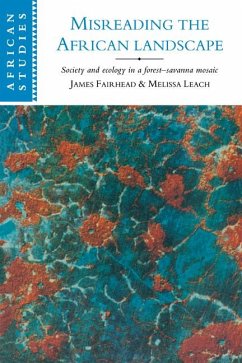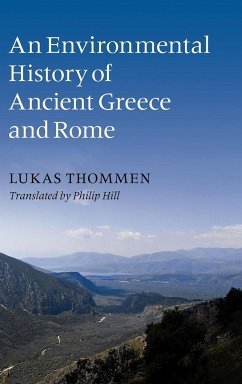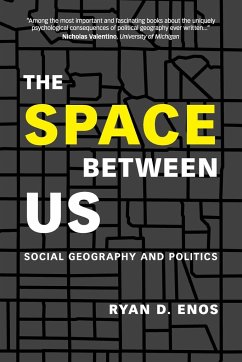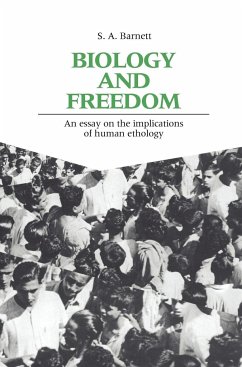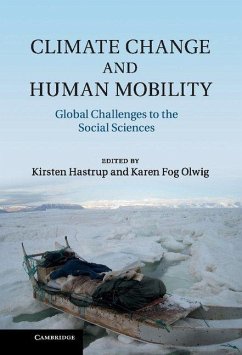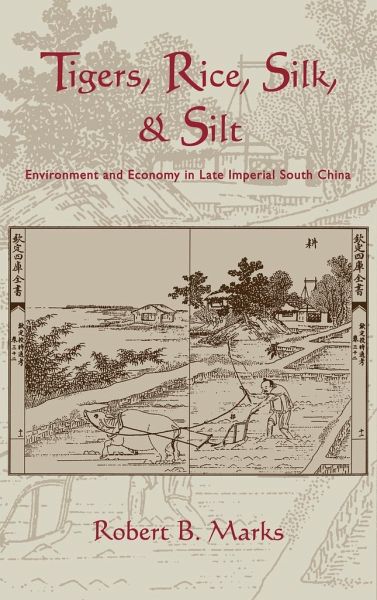
Tigers, Rice, Silk, and Silt
Environment and Economy in Late Imperial South China
Herausgeber: Worster, Donald; Crosby, Alfred W.

PAYBACK Punkte
64 °P sammeln!
Challenging the conventional wisdom conveyed by Western environmental historians about China, this book examines the correlations between economic and environmental changes in the southern Chinese provinces of Guangdong and Guangxi from 1400 to 1850, but also provides substantial background from 2CE on. Robert Marks discusses the impact of population growth on land-use patterns, the agro-ecology of the region, and deforestation; the commercialisation of agriculture and its implications for ecological change; the impact of climatic change on agriculture; and the ways in which the human populati...
Challenging the conventional wisdom conveyed by Western environmental historians about China, this book examines the correlations between economic and environmental changes in the southern Chinese provinces of Guangdong and Guangxi from 1400 to 1850, but also provides substantial background from 2CE on. Robert Marks discusses the impact of population growth on land-use patterns, the agro-ecology of the region, and deforestation; the commercialisation of agriculture and its implications for ecological change; the impact of climatic change on agriculture; and the ways in which the human population responded to environmental challenges. This book is a significant contribution to both Chinese and environmental history. It is groundbreaking in its methods and in its findings.
Table of contents:
Introduction; 1. 'Firs and pines a hundred spans round': the natural environment of Lingnan; 2. 'All deeply forested and wild places are not malarious': human settlement and ecological change, 2-1400 AD; 3. 'Agriculture is the foundation': economic recovery and development in the Ming Dynasty, 1368-1644; 4. 'All the people have fled': war and the environment in the mid-17th century crisis, 1644-1683; 5. 'Rich households compete to build ships': overseas trade and economic revival; 6. 'It never used to snow': climate change and agricultural productivity; 7. 'There is only a certain amount of grain produced': the role of the state in the food supply system; 8. 'Trade in rice is brisk:' market integration and the environment; 9. 'Population increases daily, but the land does not': the story of land clearance in the 18th century; 10. 'People said that extinction was not possible': the ecological consequences of land clearance; Conclusion.
Challenging conventional Western wisdom, Marks examines the relationship between economic and environmental changes in the imperial Chinese provinces of Guangdong and Guangxi (a region historically known as Lingnan, 'South of the Mountains') from 1400 to 1850.
Groundbreaking study of the correlations between economic and environmental changes in imperial Chinese Lingnan from 1400 to 1850.
Table of contents:
Introduction; 1. 'Firs and pines a hundred spans round': the natural environment of Lingnan; 2. 'All deeply forested and wild places are not malarious': human settlement and ecological change, 2-1400 AD; 3. 'Agriculture is the foundation': economic recovery and development in the Ming Dynasty, 1368-1644; 4. 'All the people have fled': war and the environment in the mid-17th century crisis, 1644-1683; 5. 'Rich households compete to build ships': overseas trade and economic revival; 6. 'It never used to snow': climate change and agricultural productivity; 7. 'There is only a certain amount of grain produced': the role of the state in the food supply system; 8. 'Trade in rice is brisk:' market integration and the environment; 9. 'Population increases daily, but the land does not': the story of land clearance in the 18th century; 10. 'People said that extinction was not possible': the ecological consequences of land clearance; Conclusion.
Challenging conventional Western wisdom, Marks examines the relationship between economic and environmental changes in the imperial Chinese provinces of Guangdong and Guangxi (a region historically known as Lingnan, 'South of the Mountains') from 1400 to 1850.
Groundbreaking study of the correlations between economic and environmental changes in imperial Chinese Lingnan from 1400 to 1850.





